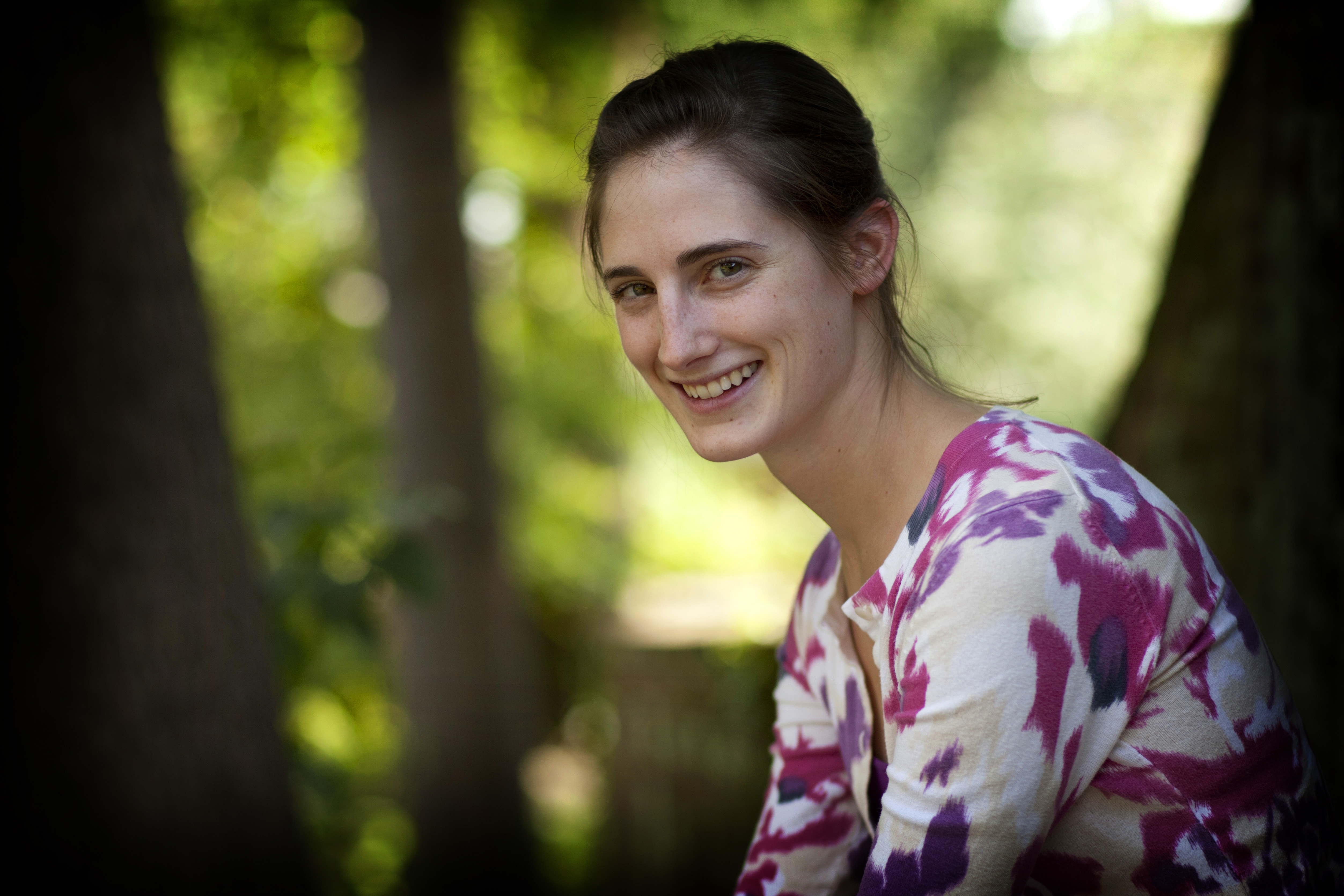September 16, 2011 — Biomedical engineering major Hannah Meredith is the first University of Virginia student to receive a scholarship from the Astronaut Scholarship Foundation.
Meredith, a fourth-year student in the School of Engineering and Applied Science, will receive the $10,000 award from former Apollo astronaut Edgar Mitchell, the sixth man to set foot on the moon, on Sept. 20 at 2 p.m. in a ceremony and public lecture in the auditorium of the Mary and David Harrison Institute for American History, Literature, and Culture / Albert and Shirley Small Special Collections Library.
"I am extremely honored and thankful to receive the Astronaut Scholarship, especially since it is the first time the award was offered at U.Va.," Meredith said. "I applied to the Astronaut Scholarship Program because of the high level of support it offers students interested in pursuing research after college. This scholarship will help me reach my goal of attending graduate school and obtaining a Ph.D."
"The Astronaut Scholarship recognizes Hannah's outstanding scientific creativity and curiosity in biomedical engineering as well as her dedication to multidisciplinary research to improve human health," said Brian P. Helmke, associate professor in the Department of Biomedical Engineering. "As one of only 26 recipients nationwide, she represents the high quality of undergraduate science and engineering students at U.Va. This scholarship is a well-deserved honor that will launch the next stage of her very promising career."
The daughter of Ruth Clemo and Alex Meredith of Richmond, Meredith is researching the behavioral patterns of amoebae to develop an accurate, low-cost method of determining which are virulent in regions with poor sanitation.
She has received a Harrison Undergraduate Research Award for her work with amoebae, and she interned at the Oak Ridge National Laboratory this summer, designing and testing gene circuits that could be used to regulate gene expression in synthetic cells.
She has also received a University Award for Projects in the Arts for exploring the science behind artistic cooking. She is the editor-in-chief of Spectra, the Engineering and Science Undergraduate Research Journal, and vice president of the Biomedical Engineering Society. She is a Rodman Scholar, serves as the fourth-year student representative on the Rodman council and is a member of Tau Beta Pi, the engineering honor society.
"Hannah is a clear leader in biomedical engineering at the University of Virginia," Mitchell said. "She is a prime example of everything an Astronaut Scholar is supposed to be: intelligent, perseverant and destined for greatness. I am honored to have the opportunity to present this award to such a worthy U.Va. student."
Lucy Russell, director of U.Va.'s Center for Undergraduate Excellence, noted Meredith's broad interests, "from policy to publishing."
"She is a terrific representative of the University and I am pleased she has received this wonderful scholarship," she said.
The Astronaut Scholarship is the largest monetary award given in the United States to science and engineering undergraduate students based solely on merit. Twenty-six scholarships were awarded this year to college students majoring in science, technology, engineering or mathematics. More than $3 million has been awarded in scholarships to date.
"The scholarship is specifically intended for students who intend to pursue research or advance their field upon completion of their final degrees," Russell said. "There was a great deal of interest among U.Va. students in this opportunity."
Mitchell was a lunar module pilot on the 10-day Apollo 14 mission, which lifted off on Jan. 31, 1971, with Commander Alan Shepard and Command Module Pilot Stuart Roosa. On Feb. 5, Shepard and Mitchell landed the lunar module Antares in the moon's Fra Mauro highlands while Roosa remained in the lunar orbiter. During more than 33 hours on the surface, Shepard and Mitchell made two walks, setting up a nuclear-powered science station and collecting 92 pounds of lunar samples.
Mitchell retired from NASA in 1972 and currently serves on the Astronaut Scholarship Foundation's board of directors.
The Astronaut Scholarship Foundation was established in 1984 as the Mercury Seven Foundation by the six surviving members of America's original Mercury astronauts, plus Betty Grissom, widow of the seventh, Virgil "Gus" Grissom; Dr. William Douglas, Project Mercury flight surgeon; and Henri Landwirth, an Orlando businessman and friend of the astronauts. The founding astronauts were Malcolm Scott Carpenter, L. Gordon Cooper Jr., John H. Glenn Jr., Walter M. Schirra, Alan B. Shepard Jr. and Donald K. "Deke" Slayton. Currently, Apollo astronaut Charlie Duke chairs the foundation's board of directors and shuttle astronaut Dan Brandenstein serves as vice chair.
– by Matt Kelly
Media Contact
Article Information
September 16, 2011
/content/uva-biomedical-engineering-major-receive-astronaut-scholarship

